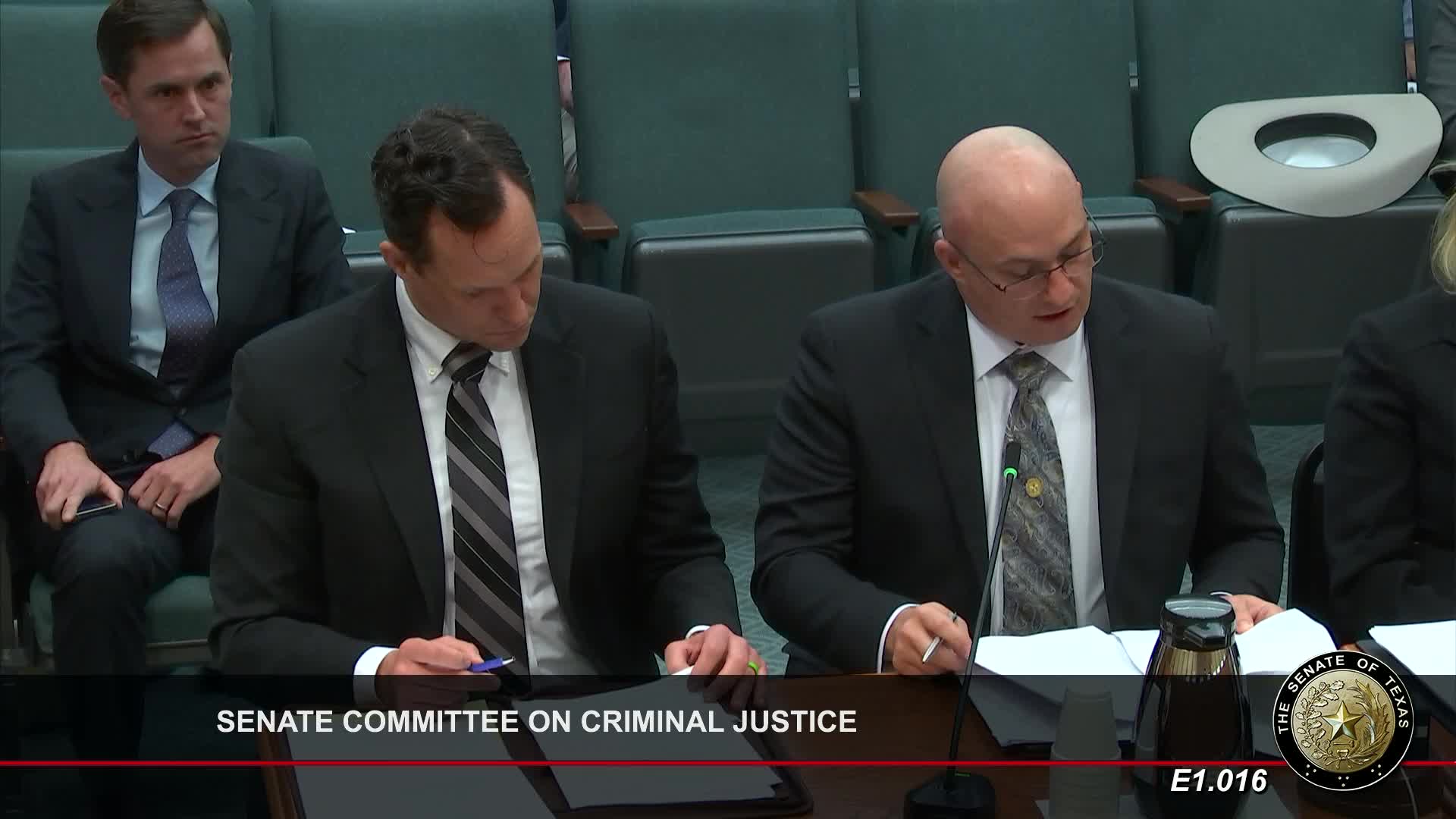Texas Attorney General's office addresses digital child exploitation challenges
March 04, 2024 | Committee on Criminal Justice, Senate, Legislative, Texas

This article was created by AI summarizing key points discussed. AI makes mistakes, so for full details and context, please refer to the video of the full meeting. Please report any errors so we can fix them. Report an error »

During a recent meeting of the Senate Committee on Criminal Justice in Texas, significant discussions emerged regarding the evolving nature of child exploitation and the legal framework surrounding it. The meeting, held on March 4, 2025, highlighted the urgent need for legislative updates to address the challenges posed by modern technology in the realm of child safety and exploitation.
One of the key topics was the current legal definition of materials that depict offenses related to child exploitation. A committee member raised concerns about the limitation of the law to "videotapes or films," questioning its relevance in an age where digital content predominates. The suggestion was made to expand the definition to include digital files and videos, which would eliminate ambiguity and enhance law enforcement's ability to act against various forms of exploitation.
Brody Burks, a prosecutor from the Texas Attorney General's Office, emphasized the alarming rise in child sexual abuse material (CSAM) and the role of technology in facilitating these crimes. He noted that the proliferation of digital tools, including generative AI and nudification apps, has not only increased the production of exploitative content but has also contributed to the normalization of child exploitation. Burks shared insights from his extensive work in the field, revealing that many parents have reported their children being victims of online exploitation, including sextortion and digital bullying.
The Attorney General's Office is committed to addressing these issues, with Burks highlighting the importance of updating criminal statutes to reflect the realities of the 21st century. He mentioned that in 2024 alone, he conducted 42 training sessions across various communities, raising awareness about the risks associated with online child exploitation.
The discussions at this meeting underscore a critical moment for Texas lawmakers as they consider how to adapt legal frameworks to better protect children in an increasingly digital world. The committee's willingness to engage with these pressing issues signals a proactive approach to safeguarding vulnerable populations against the evolving threats posed by technology. As the legislative session progresses, the outcomes of these discussions could lead to significant changes in how child exploitation is addressed in Texas.
One of the key topics was the current legal definition of materials that depict offenses related to child exploitation. A committee member raised concerns about the limitation of the law to "videotapes or films," questioning its relevance in an age where digital content predominates. The suggestion was made to expand the definition to include digital files and videos, which would eliminate ambiguity and enhance law enforcement's ability to act against various forms of exploitation.
Brody Burks, a prosecutor from the Texas Attorney General's Office, emphasized the alarming rise in child sexual abuse material (CSAM) and the role of technology in facilitating these crimes. He noted that the proliferation of digital tools, including generative AI and nudification apps, has not only increased the production of exploitative content but has also contributed to the normalization of child exploitation. Burks shared insights from his extensive work in the field, revealing that many parents have reported their children being victims of online exploitation, including sextortion and digital bullying.
The Attorney General's Office is committed to addressing these issues, with Burks highlighting the importance of updating criminal statutes to reflect the realities of the 21st century. He mentioned that in 2024 alone, he conducted 42 training sessions across various communities, raising awareness about the risks associated with online child exploitation.
The discussions at this meeting underscore a critical moment for Texas lawmakers as they consider how to adapt legal frameworks to better protect children in an increasingly digital world. The committee's willingness to engage with these pressing issues signals a proactive approach to safeguarding vulnerable populations against the evolving threats posed by technology. As the legislative session progresses, the outcomes of these discussions could lead to significant changes in how child exploitation is addressed in Texas.
View full meeting
This article is based on a recent meeting—watch the full video and explore the complete transcript for deeper insights into the discussion.
View full meeting
